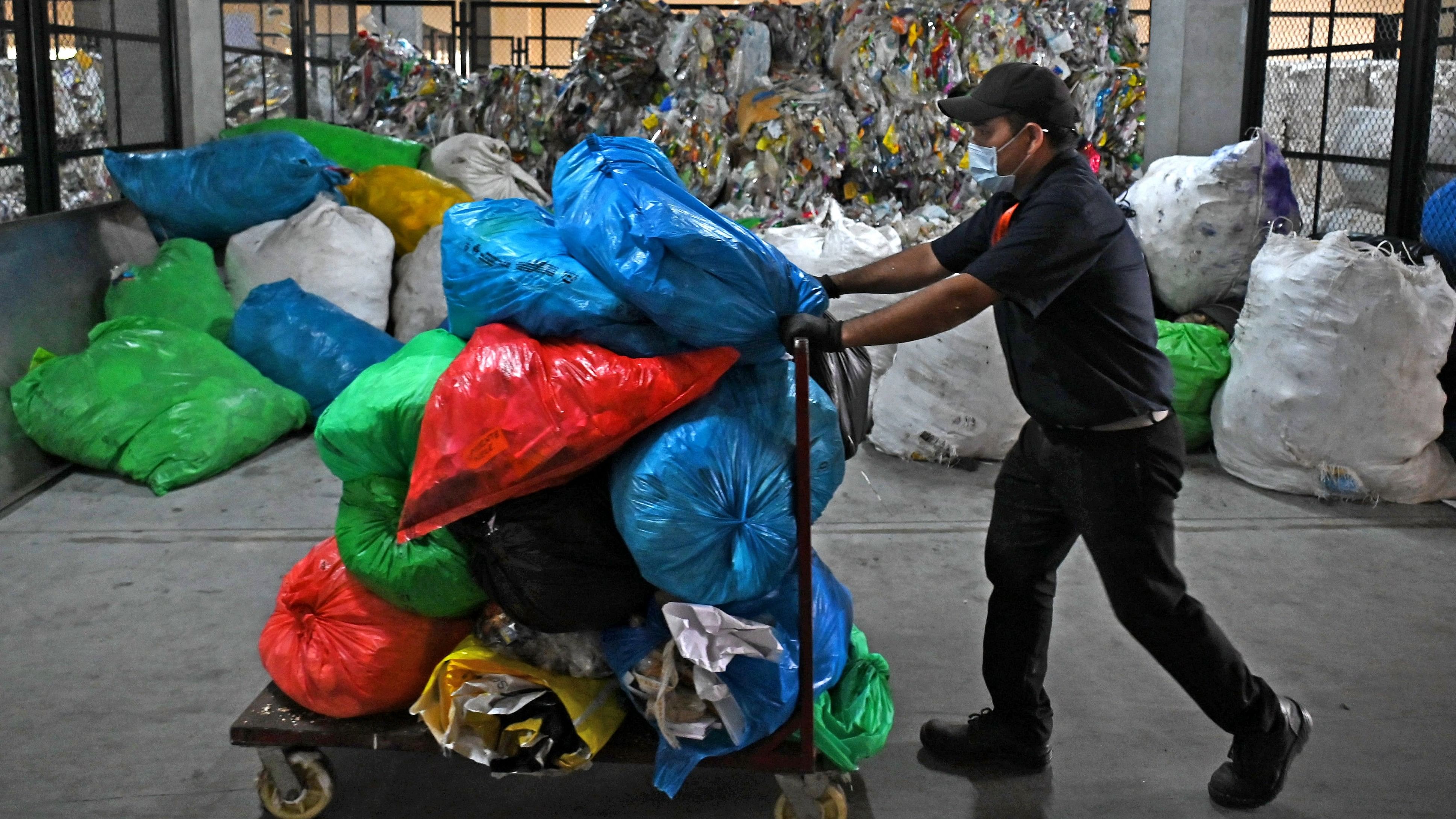
A solid waste management facility at the Electronics City Industrial Township Authority (ELCITA) in Bengaluru.
DH Photo/Pushkar V
The Bruhat Bengaluru Mahanagara Palike (BBMP) will no longer directly oversee solid waste management in the city as the responsibility has now been transferred to an independent entity, the Bengaluru Solid Waste Management Limited (BSWML). When the government envisaged setting up the BSWML in 2021, it was supposed to be a parastatal agency outside the ambit of the BBMP, on the lines of entities that provide water, power, bus and metro services. However, for the BSWML to be an independent body, it should have been created by an Act of legislation with specific roles and responsibilities, and not through an executive order as is the case now. The BSWML should be brought under the supervision of the BBMP council to ensure better coordination. Under the new system, the BBMP’s responsibilities will be limited to ensuring the cleanliness of public places, supervising the pourakarmikas, and maintaining toilets. The BBMP will retain supervision of about 28,000 pourakarmikas tasked with sweeping about 14,000 km of streets in the city. This is likely to lead to confusion, as currently the pourakarmikas also assist garbage contractors in clearing black spots where solid waste is dumped. There is also no clarity on how the BSWML will fit into the Greater Bengaluru Authority which the government now proposes to set up to govern the city. It appears that the new arrangement has been put in place without proper application of mind — this could compound the problem instead of mitigating it.
According to the citizen’s group Bengaluru Political Action Committee (B.PAC), the city currently generates 5,000 metric tonnes of waste daily. Bengaluru grapples with a faltering waste management system where a meagre 10% of solid waste is recycled. The prevailing inadequacy in establishing scientifically sound and consistent methodologies to address the diverse spectrum of garbage generated by households, hotels, hospitals, construction sites, and industries has led to the development of several unauthorised dumpsites.
The BBMP claims to have taken a slew of measures to address the problem. These include setting up biomethanation plants in 16 locations, pelletisation to convert bio waste to fuel, organic waste converters to process small quantities of wet waste in a decentralised way, and conversion of plastic to crude oil. But the results are not visible on the ground and the aim of achieving a 100% processing rate for municipal solid waste is still a far cry. Half-hearted and half-baked ideas that both the government and the BBMP are pursuing will lead us nowhere. Instead, the focus should be on a comprehensive waste management policy involving citizen participation, and leading to a more sustainable future for Bengaluru.